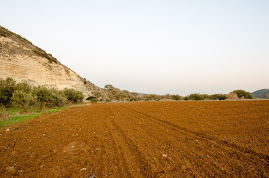The following reflection comes from a recent Bible journaling experience with a great group of brothers in the Lord. Our assigned text for the day included Proverbs 31:4-9...
It is not for kings,
O Lemuel,
it is not for kings to drink wine,
or for rulers to take strong drink,
lest they drink and forget what has been decreed
and pervert the rights of all the afflicted.
Give strong drink to the one who is perishing,
and wine to those in bitter distress;
let them drink and forget their poverty
and remember their misery no more.
Open your mouth for the mute,
for the rights of all who are destitute.
Open your mouth, judge righteously,
defend the rights of the poor and needy.
it is not for kings to drink wine,
or for rulers to take strong drink,
lest they drink and forget what has been decreed
and pervert the rights of all the afflicted.
Give strong drink to the one who is perishing,
and wine to those in bitter distress;
let them drink and forget their poverty
and remember their misery no more.
Open your mouth for the mute,
for the rights of all who are destitute.
Open your mouth, judge righteously,
defend the rights of the poor and needy.
It should be noted
that the king’s wise mother, not just his father, taught him important lessons
about life and about how to govern wisely. Since it seems that we live in a
dearth of governing wisdom, I come looking to learn from this passage.
 |
| Photo by Felipe Ponce on Unsplash |
Secondly, I observe
that Lemuel was immediately counseled to avoid alcohol for the sake of justice
and mercy. This is such an odd concept since in our Northwest culture, even Pastors and
Christian leaders freely partake of local wine, whiskey, and microbrews. We
don’t like anyone telling us what to do, and indulgence is often taken as a sign
of spiritual maturity…that somehow we are past all that old-fashioned
legalistic stuff.
However, the reason
that the king was to abstain wasn't immaturity but as an expression of the love of God for his
people. It was so that the ruler might consistently be both just and merciful.
This means subordinating personal freedom for the sake of the community's good. It
was the king’s job to preserve justice so that the laws might be kept fairly
and the rights of the afflicted might not be perverted. Sadly, history is not
lacking in examples of kings who put their appetites first to terrible effect
on their people. Maybe they didn't have a wise mother to instruct them.
Instead of consuming
in privilege, this text may suggest that the king should also be
generously
involved in providing merciful “medication” to help meet the needs of those who
are suffering. This is something addressed in the New Testament as Paul
declared to the Galatian churches,
 |
| Photo by Rachael Henning on Unsplash |
"For you were called to freedom,
brothers.
Only do not use your freedom as
an opportunity for the flesh,
but through love serve one another.
For the whole law is fulfilled in one word:
'You shall love your neighbor as yourself.'” (Gal. 5:13-14)
Only do not use your freedom as
an opportunity for the flesh,
but through love serve one another.
For the whole law is fulfilled in one word:
'You shall love your neighbor as yourself.'” (Gal. 5:13-14)
Thinking of others
first is always a virtue to be pursued. However, our indulged appetites can impair our judgment and lead us to treat other people like things rather than as human beings created in the image of God. What does this passage say to those
with cultural privilege in the face of human suffering? How would the Spirit
have you apply this concept in your context?
 |
| "I am a man" Protest Mural in Memphis, TN Photo by Joshua J. Cotten on Unsplash |
Thirdly, the king was
not merely to "do no harm" through selfish consumption but was to
actively advocate for the voiceless, the powerless, and the resourceless, not for
those who already have more than they need. Verses 8-9 make a strong statement
that we should not miss. The king was instructed,
Open your mouth for
the mute,
for the rights of all who are destitute.
Open your mouth, judge righteously,
defend the rights of the poor and needy.
for the rights of all who are destitute.
Open your mouth, judge righteously,
defend the rights of the poor and needy.
This passage serves to
help me remember that, to whatever degree I am a godly leader, it is to share God’s goodness with others and not to serve my own
appetites. To whatever degree I have influence, I should leverage it for the benefit of the underdog, the poor, and the needy. If I am to do this, then I
need to be saturated with the Word of God and filled with the Holy Spirit,
rather than drunk and otherwise altered by the excesses that the world might
provide to one who walks in privilege.
Will I stop talking
long enough to listen?
Will I stop consuming enough to give?
Will I stop posturing long enough to advocate for others?
Too often, I do not, will not, and craft excuses that exempt me from any self-recrimination.
Will I stop consuming enough to give?
Will I stop posturing long enough to advocate for others?
Too often, I do not, will not, and craft excuses that exempt me from any self-recrimination.
O Lord, may I become
more sensitive, more aware, more responsive, and more loving towards your children
(though they may walk disguised). As you have shared with me, gifted me,
provided for me, and defended me… work through me to share all the goodness of
your love with others.



